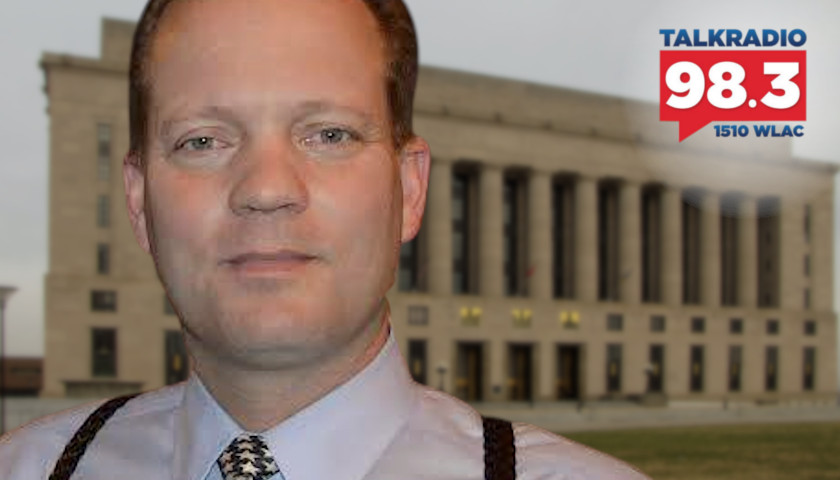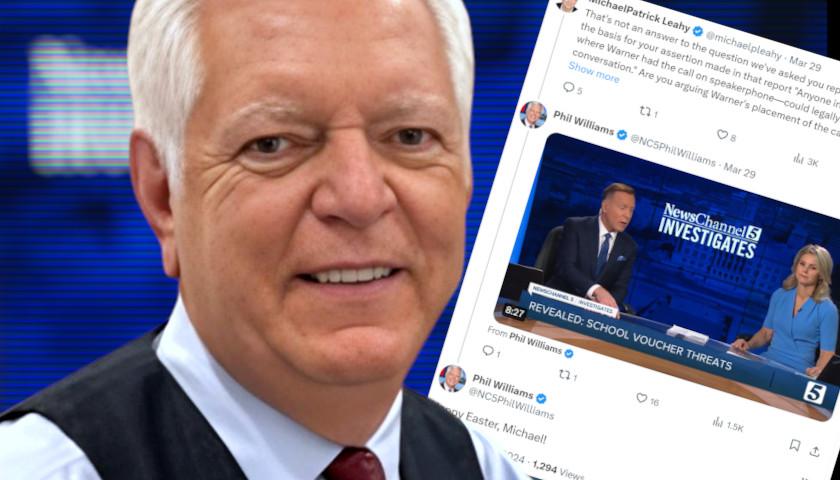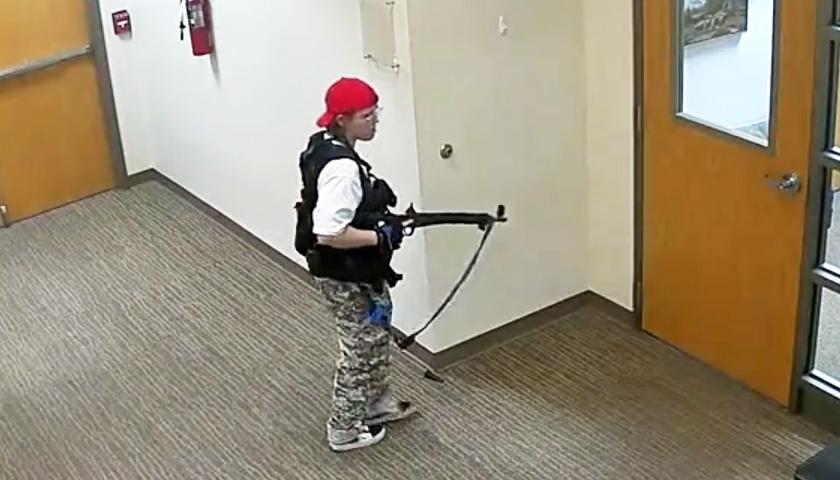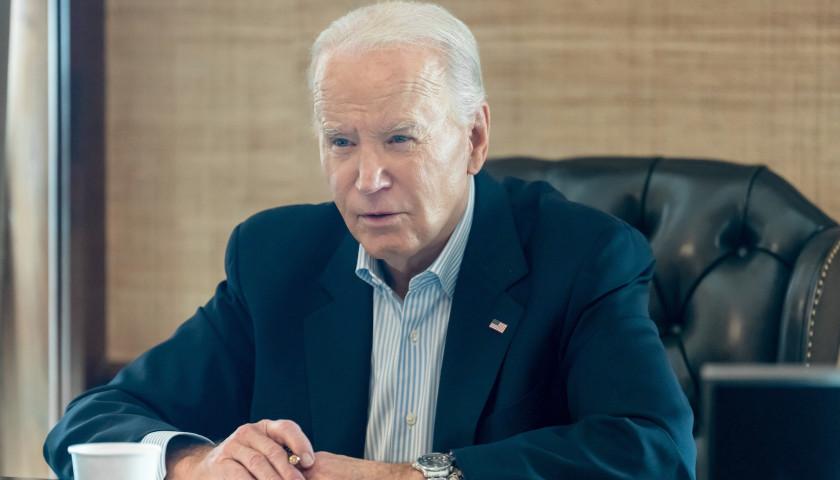Live from Music Row Friday morning on The Tennessee Star Report with Michael Patrick Leahy – broadcast on Nashville’s Talk Radio 98.3 and 1510 WLAC weekdays from 5:00 a.m. to 8:00 a.m. – host Leahy welcomed the Nashville Taxpayer Protections Act Attorney Jim Roberts to the newsmakers line to discuss Metro Legals shenanigans and efforts to prevent the referendum on the ballot.
Leahy: In studio, Crom Carmichael. On the newsmaker line. A good friend, Jim Roberts, the attorney behind the Nashville Taxpayer Protection Act. Well, twists and turns. Jim, where are we now?
Roberts: We are we now? Oh, we’re having a good time. Good time. So the latest news, of course, is we did turn in sufficient signatures. The Election Commission should have received those signatures and should be counting them. But we’re getting rumors and whispers of Shenanigans being pulled by the Metro government, unfortunately.
Leahy: Yes, shenanigans, Metro government. These are two words that are synonymous these days.
Carmichael: Did you file your lawsuit?
Roberts: We are going to file this afternoon. It’s already drafted. I’m working on a motion. What they are going to do is that they’re going to try to do is just not count the votes. That’s what the rumor is. That is Metro Legal’s strategy is to just say we’re not going to count the votes because we’re not even going to try.
Leahy: They are bound by law to count the signatures, correct?
Roberts: Well, you would think that. And so what Metro Legal has done is, we think is told the Election Commission just told them, oh, that’s not enough signatures. And so they’re putting pressure on the Election Commission we hear to just refuse to even count them.
Leahy: They can’t do that. That’s illegal.
Carmichael: Here’s what I think I hear Jim saying. This is why his lawsuit is necessary. His lawsuit is necessary to establish what is the definition of the general election.
Roberts: That’s right.
Carmichael: And then once that’s defined, then Metro has to count it because then the number would be set according to the legal precedent of the courts. The precedent is that the general election is the Metro election, not the election for Congress.
Leahy: Yeah. Describe for our listing audience what the charter says about the number of petitions you have to turn in 10 percent of the previous general election. The August 2020 local county general election had 120,000 votes. 12,000 is 10 percent. The November state and national election had like 320,000 votes. 32,000 is 10 percent. You turned in 14,000. Tell our listeners about what the charter says about what the preceding general election means.
Roberts: Well, I can actually make it even easier. The law is actually already set. Metro Legal litigated this against the Community Oversight Board. Two years ago and Metro Legal took a very strong position and the Court of Appeals adopted the position that the intervening federal election doesn’t count. It’s not to be counted. Special elections aren’t to be counted.
The only thing that counts as a preceding general election is an election for a county-wide office like the Assessor of Property, which is what happened last August. There were actually four general elections on our ballot last August, but three of them were special elections because of people who had either died or retired from office.
There was only one office and that’s the Accessor of Property, and only 92,000 people voted. So we really don’t even have to have 12,000 signatures. We only have to have 9,238 signatures. Everything Metro Legal and unfortunately, the Election Commission is putting out about a number greater than that is intent at deception and an attempt at voter suppression. So it is to suppress the people’s vote.
Carmichael: So you are filing a lawsuit that is a declaratory judgment lawsuit to define the definition or not to define it, but to confirm that the definition of a “general election” in regard to what this is about has to do with the local county and the last general county election.
Roberts: That’s right. And the law is very clear. And in fact, we’re even going to attach a copy of Metro Legal’s appellate brief. That’s the brief they filed with the Court of Appeals, where they argued that very issue. They even built a little table where they showed all the different elections and why they didn’t count. But I have a feeling they’re going to reverse themselves and shamelessly, try to create confusion, and really try to suppress this.
They don’t want this on the ballot. Let’s just get it straight. This means a lessening of power for the Metropolitan Government. And governments don’t like losing power. They want to keep that tax increase. They want to bring another tax increase. It’s already being floated that the taxes are going to go up again this year. And they know that if they try to do that at the same time, people are voting on this, that it’s just going to help us get the vote out.
Leahy: But according to the charter, when you turn in signatures for a vote to be held on an amendment to the charter it has to be counted by the Metro clerk. Am I right or not?
Roberts: Well, it’s certainly is what the law says. But when has the law ever constrained the government when it could get away with it? I mean, the fact that you have to sue the government to force it to follow its own laws, that happens when the government won’t follow its own laws. Metro Legal doesn’t care what the law is.
They don’t care that they took a position two years ago that said one thing. They’ll come in and change their position without hesitation because they’ll be told to do that by the Director of Law, Bob Cooper, who doesn’t care what the law is. He only cares what the result is. He doesn’t want people to vote on this.
Carmichael: And then the judge will have to rule whether or not the precedent and the definition of what the general election is. And then, Michael, at that point, let’s assume for purposes of discussion that the judge rules that the definition of the general election is the last county-wide election. Let’s assume then Metro will have to count the votes because the number that was turned in was greater than what the minimum would then be. They then have to do that. Now, their argument is that he needed to turn in 32,000, and he didn’t, so there’s no reason to even count. So Jim is now filing a suit…
Roberts: That’s exactly right.
Carmichael: To have the last August election, which was the last county-wide election to be the one that determines the total number of which 10 percent will be multiplied against.
Leahy: Jim, the Davidson County Election Commission, I guess, is scheduled to meet on Tuesday of next week. What do you think will happen during that meeting?
Roberts: Well, we don’t know exactly because, unfortunately, this is usually a sign of something dishonest is about to happen. They’ve announced the meeting, but they have not released the agenda. They are apparently going to hold their cards close to their chest of what they’re actually planning on doing. And that’s really why we’re going to go ahead and follow this lawsuit.
We want to get the law in the record in front of it. There are attorneys on the Election Commission that are smart. Jim Bolinas is one of the commissioners, and he is going to be smart enough, I believe, to read not only what the Court of Appeals said, but Metro’s position and realize that Metro is full of hot air. And I don’t think he’s going to let the Commission do something that just sets it up to get sued foolishly. This involves the Voting Rights Act and Civil Rights Acts. I mean, this is an intentional suppression of people’s voting and that’s a violation of federal law. And we’re going to push this.
Carmichael: You probably should reach out to the CEO of Delta (Leahy chuckles) and about voter suppression. I’m sure he’ll just jump right in and help you. (Laughter)
Roberts: Well, this is what it is. They don’t want this on the ballot. They don’t care about the mayor. They don’t care if it’s a good idea. And this is how corrupt governments work. And they just don’t let you vote.
Leahy: That’s right.
Listen to the full third hour here:
– – –
Tune in weekdays from 5:00 – 8:00 a.m. to the Tennessee Star Report with Michael Patrick Leahy on Talk Radio 98.3 FM WLAC 1510. Listen online at iHeart Radio.
Background Photo “Nashville City Hall” by euthman. CC BY-SA 2.0.




